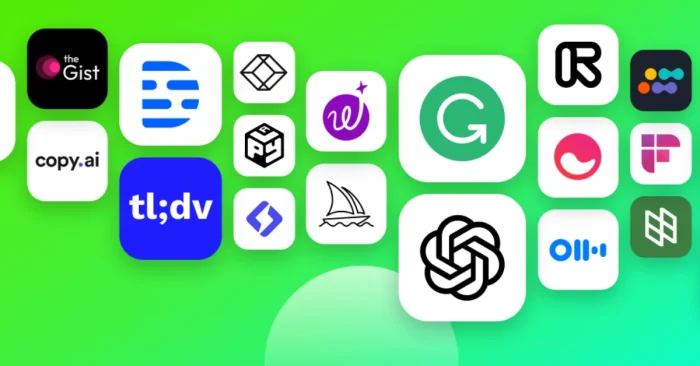Overview
AI tools for GitHub automation are revolutionizing software development by streamlining code management, issue tracking, and collaboration. These tools leverage machine learning, natural language processing, and predictive algorithms to assist developers in writing, reviewing, and deploying code efficiently.
AI can automatically generate pull requests, suggest code improvements, detect bugs, and manage workflows. By integrating AI into GitHub repositories, teams save time, reduce human errors, and enhance productivity. These tools support continuous integration and deployment, ensuring faster releases, better code quality, and more effective collaboration in open-source and enterprise software projects.
1. GitHub Copilot AI Code Completion
GitHub Copilot uses AI to assist developers by suggesting code snippets and completing lines in real-time. It analyzes the context of the code, offering relevant suggestions in multiple programming languages. By providing intelligent autocompletion, GitHub Copilot speeds up development, reduces syntax errors, and improves productivity. It can also generate entire functions based on comments or existing code patterns. Widely integrated with Visual Studio Code and GitHub, Copilot helps developers write cleaner, more efficient code while learning best practices directly within the IDE.
2. CodeQL AI-Powered Code Analysis
CodeQL uses AI to scan GitHub repositories for vulnerabilities, bugs, and security issues. Its AI analyzes code patterns and identifies potential threats before deployment. CodeQL supports multiple languages and provides developers with actionable insights to fix vulnerabilities efficiently. By automating security analysis, CodeQL reduces the risk of software exploits, ensures compliance, and improves code quality. Developers can integrate CodeQL directly into their CI/CD pipelines, enabling continuous automated security checks and fostering a more robust, secure development environment.
3. Dependabot AI Dependency Management
Dependabot leverages AI to automate dependency updates and security patches in GitHub repositories. It detects outdated packages and generates pull requests with updated versions, reducing maintenance workload. Dependabot also flags vulnerabilities in dependencies and suggests fixes automatically. By keeping dependencies current, developers minimize security risks and ensure compatibility with modern libraries. Its AI-driven approach simplifies version management, enhances repository health, and allows teams to focus on feature development rather than routine updates.
4. Snyk AI Vulnerability Detection
Snyk uses AI to identify vulnerabilities in open-source dependencies and container images hosted on GitHub. Its AI scans code and external libraries, providing actionable recommendations to fix security issues. By integrating with GitHub workflows, Snyk automatically creates pull requests for fixes, enabling proactive vulnerability management. This reduces security risks, ensures compliance, and improves overall code quality. Developers can focus on building features while relying on Snyk’s AI to maintain secure and reliable repositories across projects and teams.
5. Pull Panda (Now GitHub Team Tools) – AI PR Optimization
Pull Panda uses AI to optimize pull request workflows and team collaboration on GitHub. Its AI analyzes team activity, suggests reviewers, and prioritizes pending PRs. By automating PR assignment and notifications, Pull Panda improves code review efficiency and reduces bottlenecks. Teams can maintain faster development cycles and ensure timely merging of changes. AI insights help managers monitor team productivity, balance workloads, and foster more efficient collaboration within GitHub repositories, especially for large-scale projects with multiple contributors.
6. DeepCode AI Code Review
DeepCode employs AI to provide automated code reviews for GitHub repositories. It scans code for bugs, performance issues, and anti-patterns, offering developers actionable suggestions. DeepCode learns from millions of code examples to improve its recommendations over time. By integrating AI code review, teams reduce manual errors, maintain high code quality, and accelerate development cycles. DeepCode supports multiple languages and CI/CD workflows, making it a valuable tool for improving code reliability and maintaining best practices in collaborative software projects.
7. CodeFactor AI Code Quality Analysis
CodeFactor leverages AI to evaluate code quality, detect technical debt, and enforce style guidelines in GitHub repositories. Its AI generates reports, highlights issues, and suggests improvements for cleaner, more maintainable code. Developers can track code quality trends over time and prioritize refactoring tasks. CodeFactor automates continuous quality checks, ensuring projects remain readable, efficient, and scalable. By integrating AI into development pipelines, teams improve maintainability, collaboration, and overall software performance.
8. Mergify AI Merge Automation
Mergify uses AI to automate pull request merging on GitHub. It evaluates PR status, checks CI results, and applies merge rules automatically. By handling repetitive merge tasks, Mergify reduces manual effort, prevents human errors, and accelerates release cycles. AI insights help manage dependencies and prioritize critical updates. Teams benefit from smoother collaboration and more predictable development workflows. Mergify ensures consistent merging practices across repositories, allowing developers to focus on coding rather than administrative tasks.
9. OctoAI AI Repository Insights
OctoAI analyzes GitHub repositories using AI to provide actionable insights on code quality, performance, and contributor activity. It identifies patterns, detects anomalies, and recommends optimizations. Teams can use AI-driven analytics to improve workflow efficiency, monitor productivity, and maintain high standards in collaborative projects. OctoAI supports strategic planning for releases, resource allocation, and technical improvements. By leveraging AI for repository insights, developers and managers can make data-informed decisions and enhance project outcomes.
10. AutoMerge AI Pull Request Automation
AutoMerge uses AI to automatically merge pull requests based on configurable rules and code review results. Its AI evaluates tests, dependencies, and conflict risks to decide optimal merge timing. By automating the PR merging process, AutoMerge reduces bottlenecks, improves deployment speed, and ensures code stability. Developers save time while maintaining high-quality standards. This AI-driven approach is particularly useful for large projects with frequent contributions, ensuring smooth collaboration and continuous integration across GitHub repositories.
(FAQs)
Q1: Can AI replace developers on GitHub?
No, AI assists with automation, code analysis, and workflow optimization, but human expertise is essential for decision-making, problem-solving, and creative coding tasks.
Q2: Are these AI GitHub tools free?
Some tools like GitHub Copilot and Dependabot offer free tiers, while advanced features in Snyk, DeepCode, and OctoAI may require subscriptions.
Q3: Do AI tools guarantee bug-free code?
AI tools improve code quality and detect issues, but ultimate code reliability depends on developer review, testing, and good development practices.
Learn More About AI Course https://buhave.com/courses/learn/ai/






